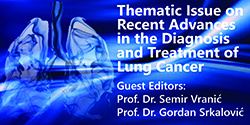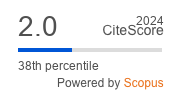Forms and Frequency of Sanctions against General Practitioners and Family Medicine Specialists in Macedonia
DOI:
https://doi.org/10.5644/ama2006-124.349Keywords:
Sanctions, Primary Healthcare, Family Medicine, Financial Control, General PractitionersAbstract
Objective. The goal of this study is to evaluate the reasons for sanctioning and the types of sanctions used on general medicine primary healthcare practitioners (GM-PHPs) in the Republic of Macedonia.
Materials and Method. This is a cross-sectional study for which we used an anonymous survey. This survey was distributed in a printed and electronic form to GM-PHPs in different parts of Macedonia and 438 of them responded. We used the SPSS statistical program to process the quantitative data. Results. The GM-PHPs’ sex was not associated with the sanctioning in the univariable analysis, but it was in the multivariable. GM-PHPs with ≥30 years of experience have 8.7 times higher odds to be sanctioned than those with ≤5 years of experience. GM-PHPs that worked in the hospital or ≤19 km from the nearest hospital were significantly more frequently sanctioned. The most common three reasons for sanctioning were: “Financial consumption of prescriptions and referrals above the agreed amount”, “Higher rate of sick leaves and/or unjustified sick leaves” and “Unrealized preventative goals or education”. “Financial sanction by scale” was the most common type of sanction - 49.8% of participants. GM-PHPs who followed the guidelines, but were exposed to violence by patients or their family/companion were sanctioned significantly more frequently.
Conclusions. In our sample, we can observe that in the univariable analysis age, years of experience, family medicine speciality, the distance of the workplace from the nearest hospital and violence are associated with sanctioning. In the multivariable analysis: sex, years of experience, the distance of the workplace from the nearest hospital and violence are associated with sanctioning. The majority of sanctions were financial sanctions (84.5%).
Downloads
Published
Issue
Section
License
Copyright (c) 2021 Marija Zafirovska, Aleksandar Zafirovski, Ljubin Šukriev, Danica Rotar-Pavlič, Katarina Stavrikj

This work is licensed under a Creative Commons Attribution-NonCommercial 4.0 International License.






